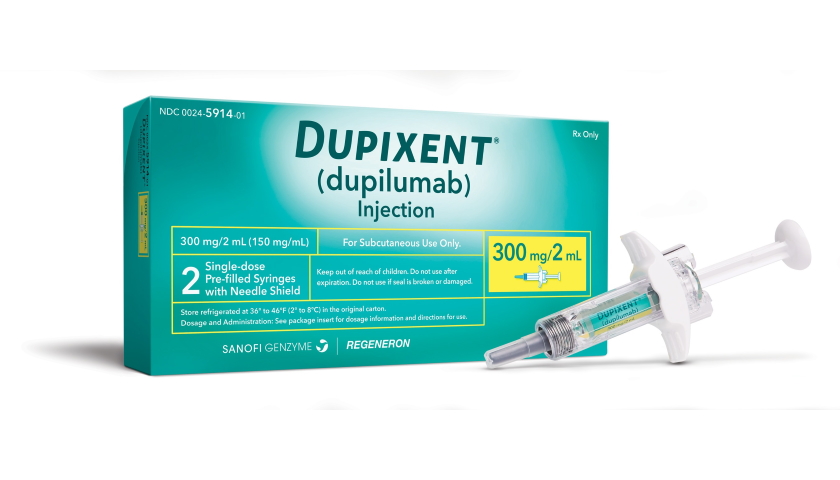Regeneron/Sanofi get EU okay for Dupixent in “asthma of the sinuses”

Regeneron and Sanofi’s immunology drug Dupixent has been approved for a third indication in Europe, adding the treatment of symptoms caused by nasal polyps to its current uses in atopic dermatitis and severe asthma.
The European Commission has cleared Dupixent (dupilumab) – an inhibitor of interleukins 4 and 13 – for chronic rhinosinusitis associated with nasal polyps, a few months after the new indication was given a green light by the US FDA.
The new labelling for the antibody indicates it can be given as an add-on therapy to intranasal corticosteroids in patients who still have symptoms despite surgery and/or steroid therapy, becoming the first biologic in the EU for this use.
In severe cases, chronic rhinosinusitis with nasal polyps – sometimes referred to as “asthma of the sinuses” - can obstruct the sinuses and nasal passages and lead to persistent breathing difficulties, nasal congestion and discharge, reduced or loss of sense of smell and taste, and facial pressure or pain.
Dupixent is Sanofi and Regeneron’s star product at the moment, with sales almost tripling to €825 million ($917 million) in the first half of this year thanks to increased use in younger atopic dermatitis patients as well as the newer asthma indication.
Sanofi is due to report its third-quarter results on Thursday, but has previously said it expects full-year sales of the product to reach more than $2 billion.
Sanofi’s head of R&D John Reed said the new approval is important as around 60% of patients with nasal polyposis also have asthma, and tend to have a more severe disease that is often more difficult to treat.
“These particular patients may have an increased risk of asthma attacks, high symptom burden and a substantial adverse impact on health-related quality of life,” he added.
The new nasal polyposis indication could be worth up to $1 billion in additional sales for Dupixent on its own, according to some analysts, provided payers are prepared to foot the $36,000 annual cost of treatment for an indication that is currently treated with cheap generic drugs.
Peak sales forecasts for the product vary widely, but there has been clustering around the $5 to $7 billion bracket.
Those lofty expectations assume however that Sanofi and Regeneron can add some other indications to Dupixent’s label such as eosinophilic oesophagitis, food and environmental allergies and chronic obstructive pulmonary disease (COPD).













